Wherever there is a human being, there is an opportunity for kindness. –Seneca
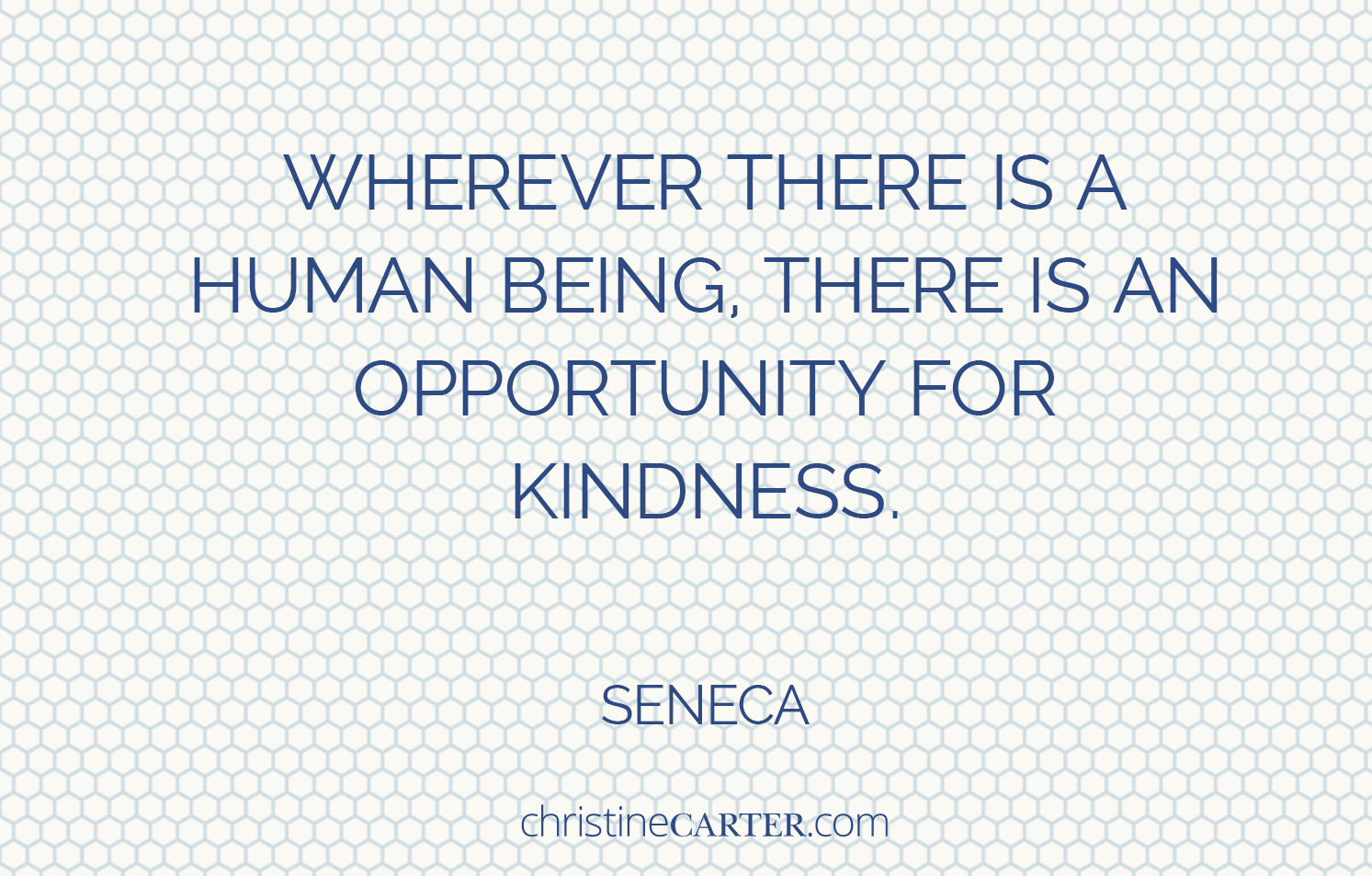

Wherever there is a human being, there is an opportunity for kindness. –Seneca

I love how this Mother’s Day note captures all the little things we do to keep our families humming and happy. Happy Mothers Day!
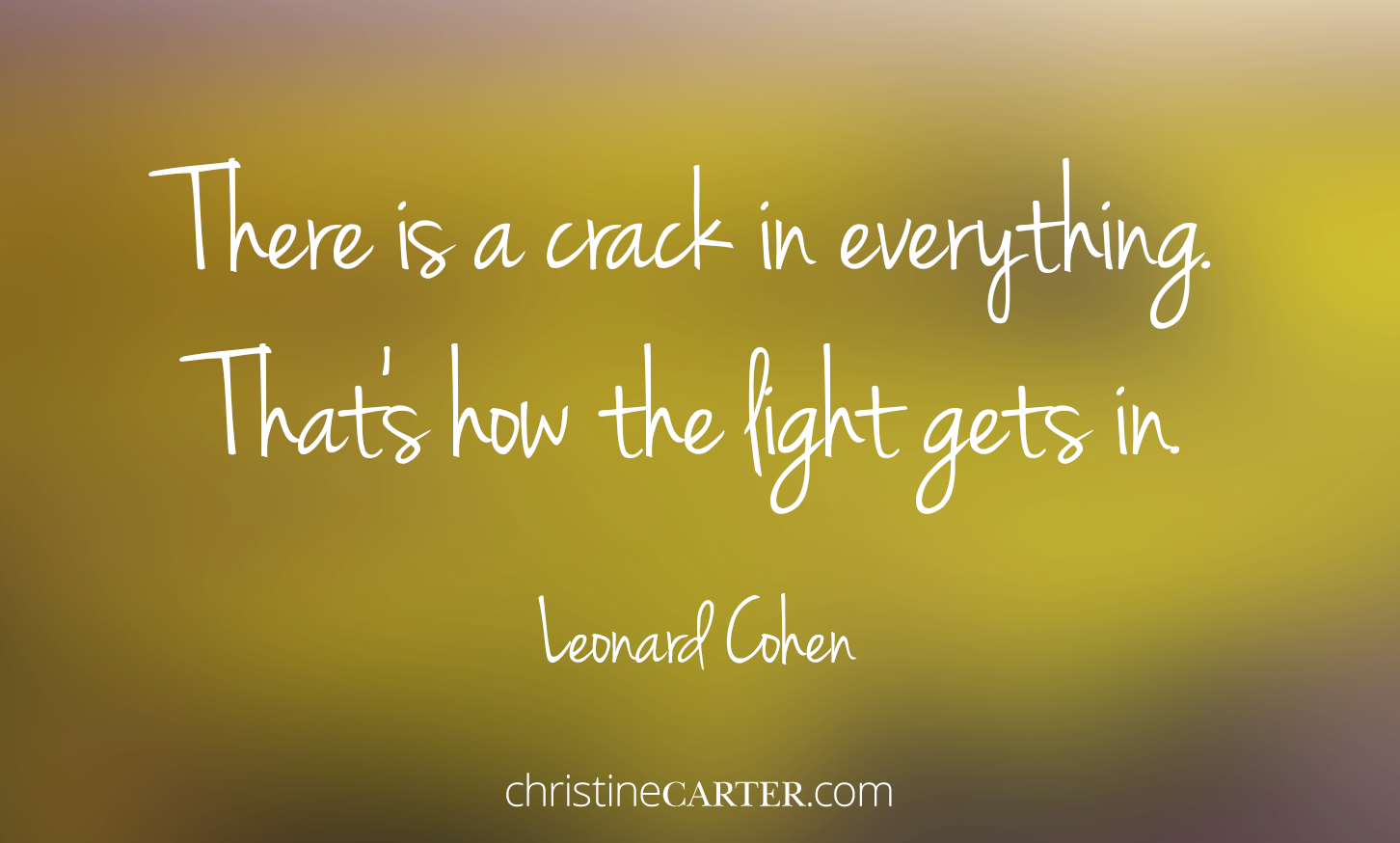
There is a crack in everything. That’s how the light gets in. – Leonard Cohen

Doesn’t “practice discontinuous productivity” sound so technical and important? It IS powerful, but honestly it just means: Take a break. Rest your brain. But if I posted a Tuesday Tip titled “Just Rest a Little Here and There” would you have read it?
If you are like most of my clients, probably not. Most people I know are afraid (terrified?) to rest during the workday and go to great lengths to hide the breaks they take. As a society, we are super committed to the factory model of continuous production that arose during the industrial revolution. But, as I’ve written about before, the human brain did not evolve to work well nonstop. You can probably work for eight to ten hours straight, I know. But here is the real question: Why would you want to work in a way that doesn’t optimize your brain’s natural power? That doesn’t optimize your intelligence, energy, efficiency, creativity, and, frankly, the joy you derive from your work?
One simple (if not easy) way to get the best of your brain power is to rest between periods of productivity. After about 90 minutes of high output, your energy will naturally dip. Your brain needs a period of recovery, or tension and stress will start to build, and productivity will start to decline. So work with, not against, your brain’s natural cycles of high and low energy (which are called “ultradian rhythms”).
Productivity experts recommend periods of intense focus followed by high-quality periods of rest. Rest periods needn’t be long if you truly take a break. But, I’ll be honest here, rest periods are better if they last about…90 minutes. I know, I know. That seems too long today, when we want everything instantly. I’m old enough to remember a time in corporate America — I worked at The Quaker Oats Company — when we regularly took lunch breaks that lasted an hour or more. Today we want an insta-break; 1 minute seems ideal in a world where many people don’t leave their desks for lunch.
Even if you can’t find 90 minutes between meetings, you can practice “discontinuousproductivity.” Try going for a little walk outside, chatting with a coworker or neighbor about a new movie, or eating lunch outside or near a sunny window. One productivity expert, Bob Pozen, closes his office door after lunch and naps for 30 minutes. Pozen has worked as a top mutual fund executive, an attorney, a government official, a law school professor, a business school professor and a prolific author–often doing several jobs at once. If he can nap midday, for crying out loud, so can the rest of us.
Join the discussion: Do you have any tips for making time for breaks in your day? Share your thoughts in the comments below!
Photo by Simon Matzinger.

… in the mean time, enjoy this funny public service message.
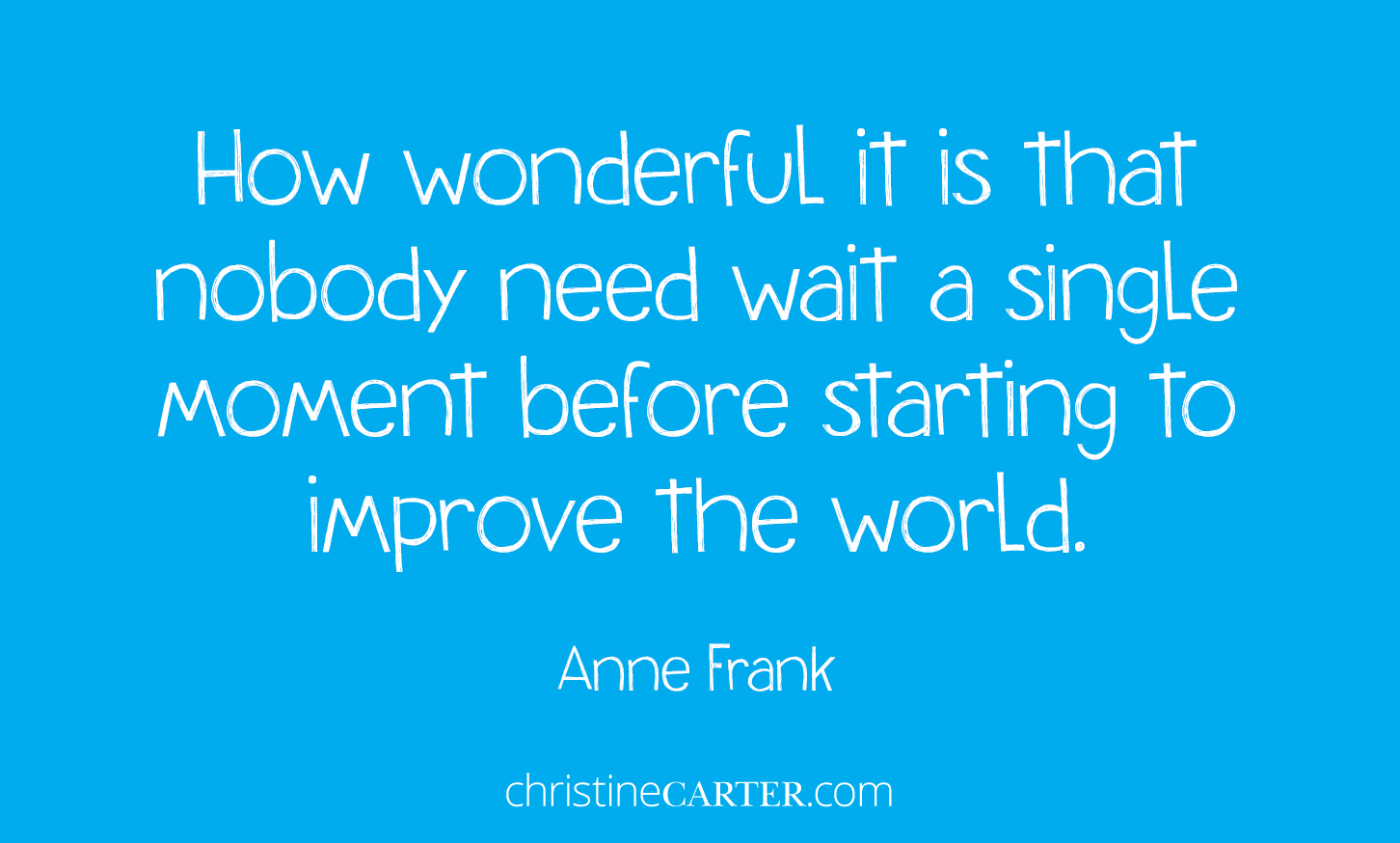
How wonderful it is that nobody need wait a single moment before starting to improve the world. –Anne Frank
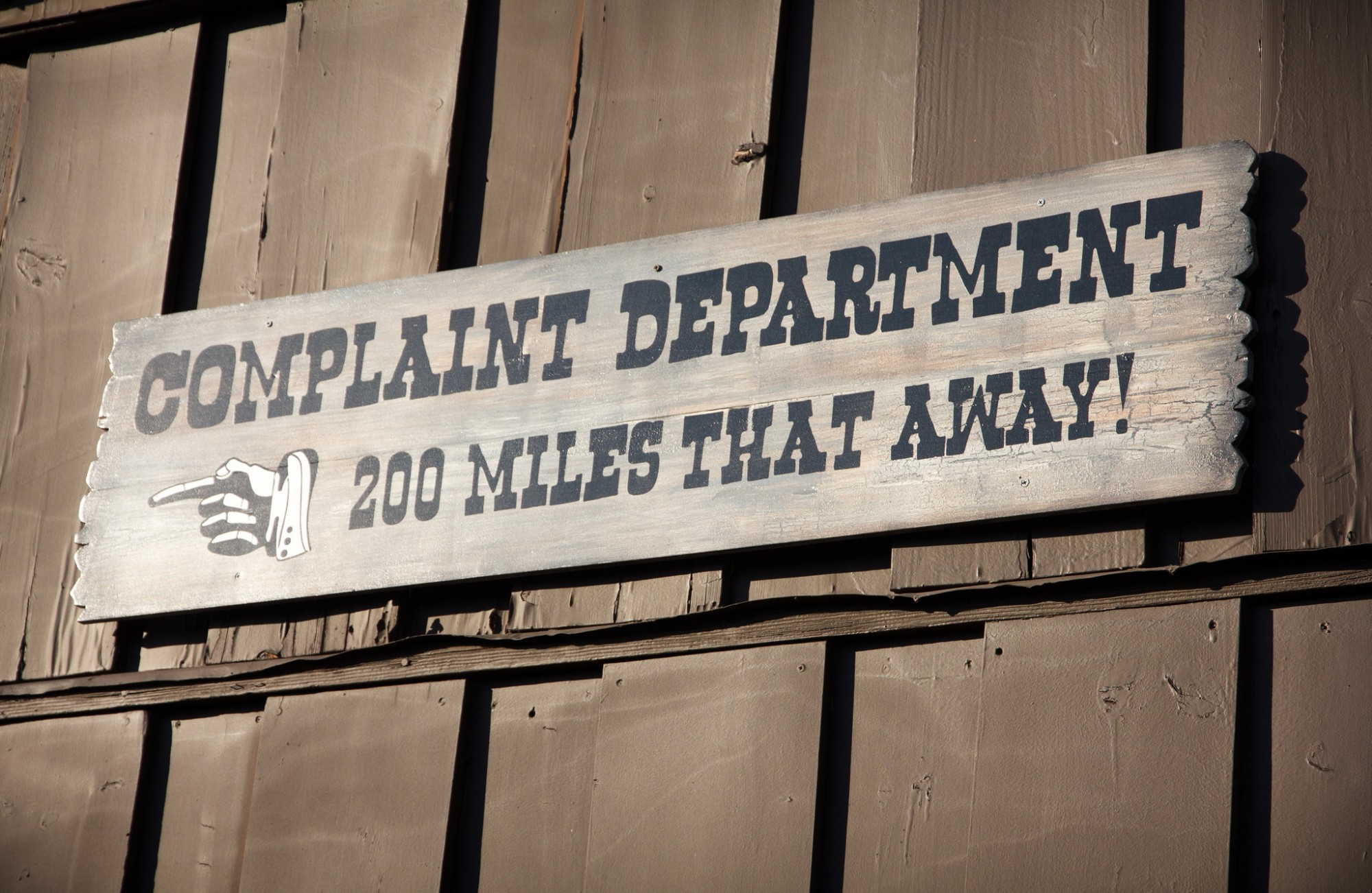
Leading a joyful life does not mean always trying to be happy, or pretending that we don’t sometimes feel annoyed, disappointed, irritated, or hassled. These days, I try not to fake happiness…ever.
At the same time, I’m not really one for complaining. When I was in my twenties, I complained nearly constantly. My best friend used to make bets with me that I couldn’t go even one month without complaining about the weather in Chicago. He was right — I couldn’t do it, even though that was the year that I’d landed a dream job and had every reason I needed NOT to complain constantly. But complaining was a bad habit that was easy, and in a weird way, rewarding. I could always find something to say by complaining about the weather (because in Chicago, it is always too hot or too cold to us Californians).
But complaining is a bad habit that threatens our health, happiness, and success. Consistent complainers get sick more often and don’t do as well in their jobs as their more positive counterparts — and their relationships tend to be shorter and less satisfying. Perhaps because they are so miserable to be around!
Complaining trains your brain to see something negative as the most relevant thing to be commented on, and this negative filter can lead to greater and greater pessimism. Complaining can make your brain feel like you are doing something about a problem, when in fact you aren’t taking action at all.
Want to get out of a complaining habit? I created a little action plan for Self.com here that you might be interested in. In addition, it isn’t too late to start my free 90-day coaching program which aims to help you get into a new habit that sticks.
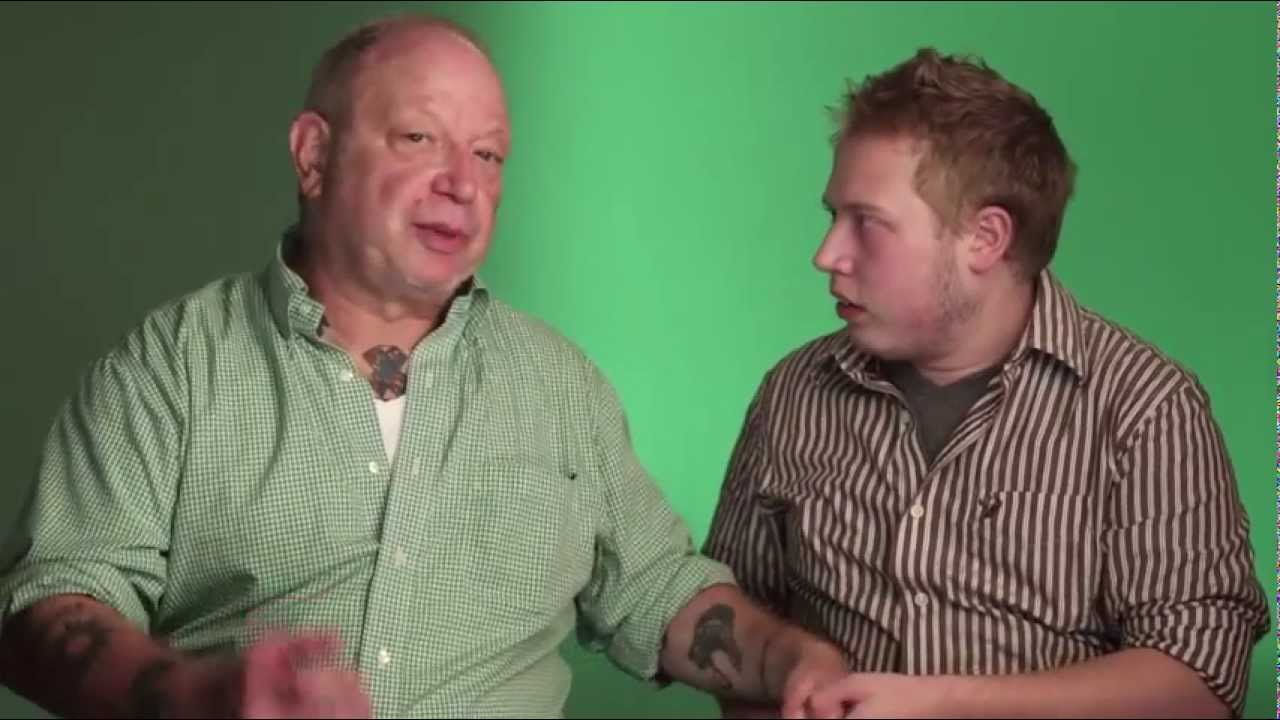
The determination, patience and love that this father demonstrates is a lesson to all parents. Unconditional love is the answer to every question. #AutismAwareness
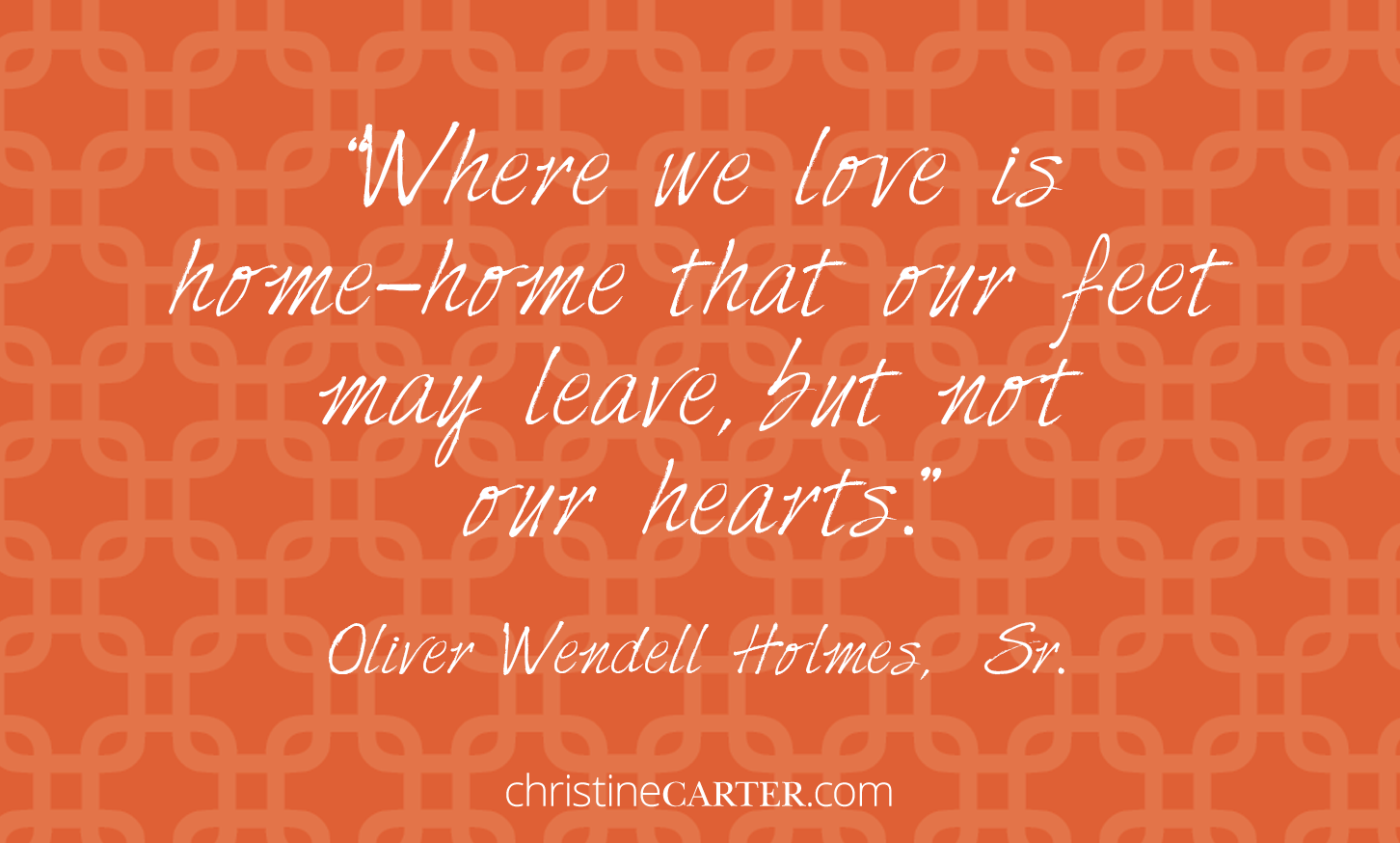
“Where we love is home—home that our feet may leave, but not our hearts.” ― Oliver Wendell Holmes, Sr.

About a year ago, a dear friend of mine gave me a gift that changed my life forever.
The night before Wisdom 2.0, my friend orchestrated things so I could sit at dinner with two people I admire greatly, Byron Katie and her husband Stephen Mitchell.
Let’s just say that it wasn’t one of the more relaxed dinners I’ve ever had. About one second into the evening, Stephen uttered one brilliant sentence referencing a philosopher I’d never heard of, and I started to panic. Clearly I was not intelligent enough to keep up with a conversation with Stephen (and the other luminaries at the table, geniuses all).
Moreover, I definitely wasn’t enlightened enough to contribute to a conversation with Katie. It’s hard to explain, but one look into Byron Katie’s eyes and you know in your soul that you are in the presence of an awakened master. Fortunately, there was a lot of food, and I am good at eating, especially when I’m stressed.
An hour or so into my panic-filled eating extravaganza, my friend vacated the seat between me and Katie and Katie slid over next to me. She gently held my hand (I was so relieved I almost cried) and looked into my eyes. “Who would you be without your fear, sweetheart?” she asked me kindly. I did not feel judged. I felt understood; moreover, I suddenly understood myself.
That one question — Who would you be without your fear? — is a game changer. I’ve been thinking about it consistently for a year now. More than that, I’ve been practicing living without fear, and I’ve experienced just how different a person I am when I’m not afraid. At times I’m still anxious and afraid, but fear isn’t a very powerful force in my life anymore.
Without so much fear, I am able to live from a place of greater integrity. I’ve stopped worrying about what other people think of me. For a lifelong people-pleaser, this is a radically different way of living.
I learned to love Byron Katie through another intellectual and spiritual hero (and fellow sociologist), Martha Beck. I left the dinner with Katie knowing I needed to find out who I was without fear; it was Martha who taught me how to drop fear and live with integrity.
The best way to learn Martha’s method for living without fear — the foundation for finding the peace and bliss that we all long for in this life — is to do one of Martha’s integrity cleanses, or, even easier, to read her new book, Diana, Herself: An Allegory of Awakening. If you’ve read Martha’s other books (like Expecting Adam or The Joy Diet) or you read her column in Oprah’s magazine, know that this book is a massive deviation from her typical work.
Even though this book is fiction and not self-help or memoir, Martha does not hold back her clear instructions for living with greater peace. I devoured Diana, Herself in the span of a few days; I daresay it is the most powerful book I’ve ever read for furthering my own personal and spiritual growth. (The book is available on Amazon).
Join the discussion: Has anyone ever asked you a question that changed your life? What was it? What book has most changed your life?